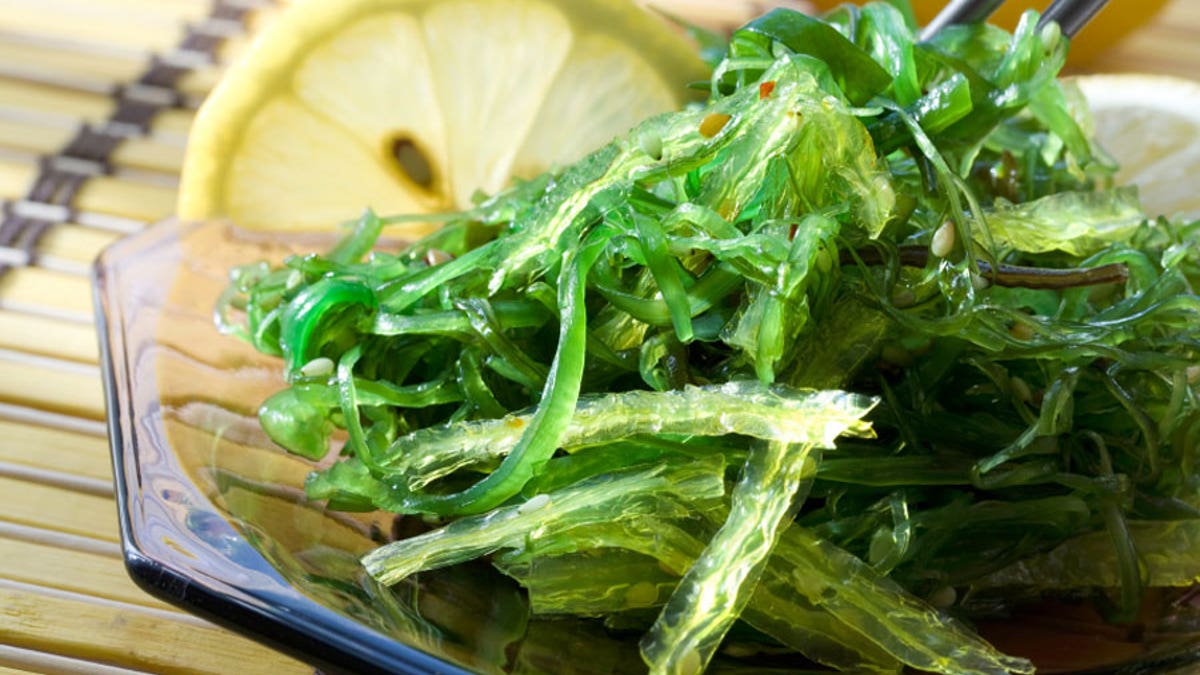
(iStock)
Seaweed is a funny thing, isn’t it? I mean, it’s a salt-water-dwelling marine algae. Who would have ever thought that people would eat it? But interestingly, it’s been a staple in many cultures’ diets for a long time.
In fact, Chinese and Japanese cultures have been eating seaweed (and using
it for medicinal purposes) since 300 B.C. And with good reason: seaweed is a great source of vitamin A, C, E, K, and B-vitamins. It’s also rich in many minerals including iodine, selenium, calcium, and iron.
Not to mention, recent studies reveal that the fiber in seaweed may help prevent fat absorption due to the polysaccharide, alginate. And if that isn’t news enough to eat it, other studies have suggested that ingestion of seaweed may reduce the risk of breast cancer due to its anti-estrogenic effects, as well as improve menstrual symptoms.
But with all of those health benefits, you do need to be careful about how much seaweed salad you eat because it can be high in sodium and sugar. I recently had a patient who was downing seaweed salad a few times per week, but couldn’t figure out why she wasn’t losing weight and why she felt so swollen. That’s because 1 cup of seaweed salad has about 130 calories, 25 grams of carbohydrate, 4 grams of sugar, 3 grams of fiber and the real kicker – 900-1200 mg sodium. That’s almost half of a whole day’s worth of sodium in just one cup of seaweed salad. Sodium is an electrolyte that attaches itself to water – the more sodium you eat, the more water you retain which prevents weight loss and increases swelling. Word to the wise – too much of anything is probably not a good thing.
Here are some healthy ways to eat seaweed and reap its many benefits:
Stir-fry
Hijiki seaweed looks like black linguine and tastes great as an addition to vegetable stir-fry or tofu dishes. Plus, it will give you a calcium and phosphorous boost and it’s good for bone health.
Sushi
Nori seaweed is what you’ll typically find at Japanese restaurants in their rolls, soup, and rice balls. It contains high levels of fiber, protein and cancer-fighting lignans.
Seaweed salad
Because seaweed comes from the sea, it is naturally high in sodium (as mentioned above). For a more heart-friendly seaweed salad, prepare it yourself using low-sodium soy sauce instead of regular and eliminate the salt and sugar. (Ingredients include: wakame seaweed, sesame oil, low-sodium soy sauce, sesame seeds, and rice vinegar)
Side dishes
Like traditional vegetables, seaweed is very low in saturated fat and cholesterol and is high in fiber. Low-fat, high-fiber diets can prevent diabetes and heart-disease and promote weight loss. If you are getting bored of your typical veggies, spice up your life with atypical ones, like seaweed. Sprinkle dried seaweed on top of your favorite vegetables or salad dishes, roast it in the oven on its own and top with some sesame seeds, or stir-fry with mushrooms and bake it on top of your favorite fish. The possibilities are endless!
*Large intakes of seaweed can affect those taking Coumadin or on thyroid
medication so please contact your physician before starting to eat seaweed.
Tanya Zuckerbrot MS, RD, is a nationally known registered dietitian based in New York and the creator of a proprietary high-fiber nutrition program for weight loss, wellness and for treating various medical conditions. Tanya authored the bestselling weight loss book The F-Factor Diet, and she is the first dietitian with a national line of high-fiber foods, which are sold under the F-Factor name. Become a fan of Tanya on Facebook, follow her on Twitter and LinkedIn, and visit her website Ffactor.com.




















